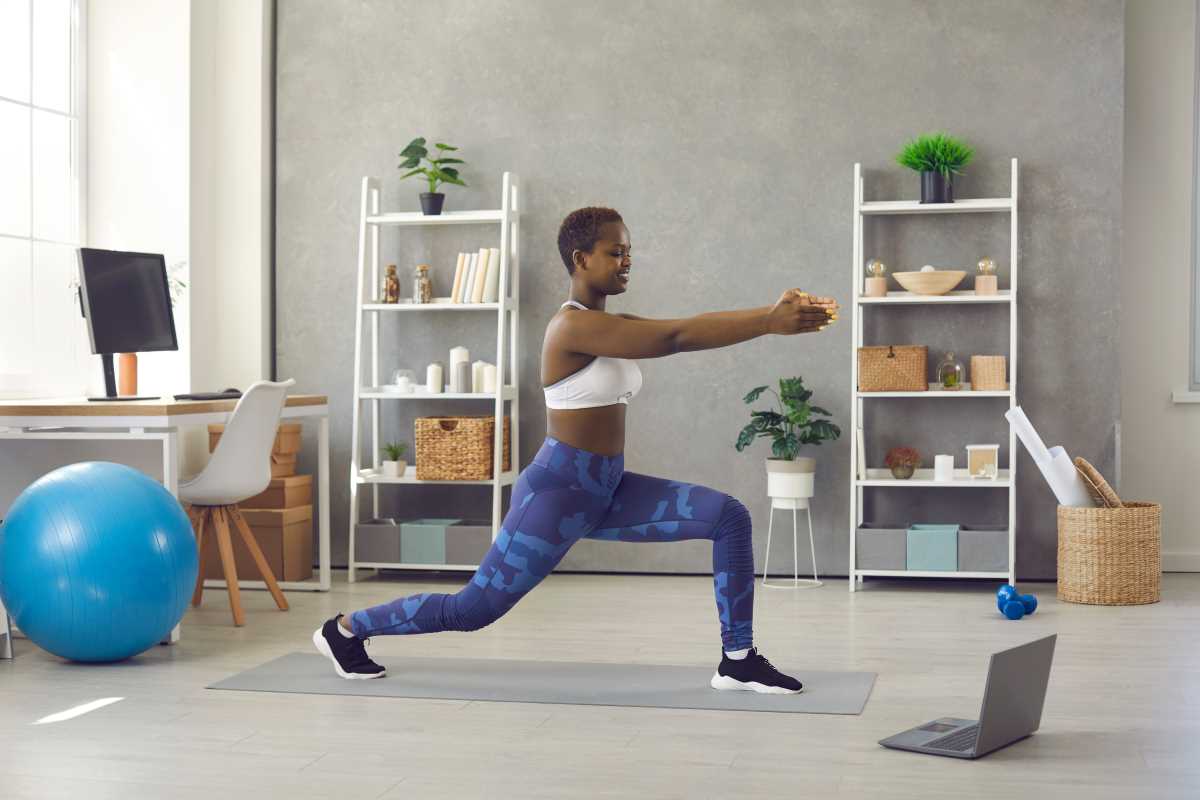For decades, the fitness world seemed to orbit around a singular message: lose weight to look better. But as we step further into the 2020s, that message is being reshaped into something far more empowering. Fitness campaigns are shifting their focus from pounds and inches to overall wellness, promoting physical, mental, and emotional health. This fresh approach feels more inclusive, more sustainable, and frankly, much more human.
This evolving narrative is about more than just marketing; it’s a reflection of changing consumer values. People don’t want to be defined by a number on a scale or trapped in a cycle of negative self-talk. Instead, they’re looking for ways to celebrate their bodies, care for their minds, and build healthier habits that last for life. And fitness brands are (finally) catching up.
Why the Shift?
The move toward wellness over weight loss has been a long time coming. Society’s understanding of health is growing. We now know that thinness doesn’t necessarily mean health, and weight isn’t the sole determinant of one’s well-being. Issues like mental health, stress levels, sleep quality, and physical strength play just as big a role in fostering a well-rounded, healthy life.
Another reason for the shift is the rise of body positivity and inclusivity. Movements challenging beauty ideals have rightly highlighted how weight-focused messaging can be harmful. It’s disempowering, exclusive, and ignores the diverse ways health can appear and feel. Consumers are done being told they need to shrink themselves to be worthy. What they want now is encouragement to enjoy their bodies, nourish their minds, and live fully without shame.
Add to that the mental health crisis brought to the surface in recent years. Stigmas are breaking down, and people are eager for conversations that center emotional as well as physical wellness. Fitness campaigns that include stress management, mindfulness, and self-care fit perfectly into this new, holistic focus on health.
Benefits of a Wellness-First Fitness Approach
This new wellness-centered approach offers benefits for nearly everyone it touches. For consumers, it allows the focus to shift from what they look like to how they feel. That simple switch can lead to:
- Improved mental health: No more punishing yourself in the gym or falling into cycles of guilt because you ate a cookie. Instead, exercise becomes a practice rooted in self-care, stress relief, and joy.
- Body positivity: When fitness campaigns celebrate all shapes, sizes, and abilities, they send an important message: movement is for everybody and every body. Feeling seen and included in these spaces is a confidence boost.
- Sustainable habits: When exercise is framed as something rewarding, not as a tool for punishment or dramatic alteration, it feels a lot more doable. People are more likely to stick with their fitness journeys because the focus becomes feeling better, not hitting arbitrary goals.
Fitness brands can benefit too. This wellness-centric messaging allows them to connect more deeply with consumers and build loyalty. People are much more likely to stick with a brand that makes them feel supported, rather than pressured to change.
How Brands Are Adapting
Some fitness brands and campaigns are emerging as leaders in this wellness-first movement, proving that you can motivate people without fixating on their weight.
WW (Wellness that Works)
The brand formerly known as Weight Watchers didn’t just rebrand itself; it overhauled its approach. While it still offers tools for weight management, WW has shifted its messaging to reflect a broader understanding of health. Its campaigns now focus on whole-person wellness, like better sleep, reduced stress, and finding joy in movement.
Nike’s “You’re It” Campaign
Nike has long celebrated athleticism in all its forms, but their latest efforts push this even further. By showcasing athletes of all shapes and abilities, their “You’re It” campaign promotes movement as empowerment rather than a means to a certain aesthetic.
MyFitnessPal’s Intuitive Eating Approach
Once associated with calorie-counting culture, MyFitnessPal has started emphasizing a more balanced perspective on food and fitness. Their platform now includes tools and blogs centered on intuitive eating, self-compassion, and exercising for reasons beyond appearance.
The Mental Impact of Wellness-Centered Fitness
The impact of this new approach to fitness isn’t just physical; it’s emotional, too. By moving away from calorie burns and “before-and-after” photos, brands are fostering spaces where people feel safe to connect with themselves and others.
For example, group fitness classes like yoga, barre, and dance are thriving because they offer a combination of mindful movement and community. Apps that mix mindfulness coaching with movement, like Calm x Fitbit integrations, are changing how we engage with exercise by emphasizing self-care.
Ultimately, this approach helps people create healthier relationships—not just with fitness, but with their bodies and minds.
Looking Ahead
The prioritization of wellness over weight loss in fitness campaigns is more than just a trend; it’s a fundamental change in how we view health. Moving forward, we’ll likely see even more brands integrating mental health features into their workout offerings. Emotional well-being, stress reduction, and even play might become just as central to fitness as physical endurance or strength.
We may also see more personalized fitness plans tailored to how you feel, with apps or programs designed to meet you where you are on any given day, whether you’re brimming with energy or just need to stretch and breathe. Brands that make inclusivity and mental well-being a priority will continue to stand out in this evolving market.
At its core, this shift is about inspiring people to fall in love with movement—not because they need to change, but because they’re worth caring for. And isn’t that exactly what fitness should be? A celebration of everything your body and mind allow you to do, not a battle to shrink or conform. The future of fitness is brighter, kinder, and, most importantly, focused on you as a whole person.
 (Image via
(Image via




